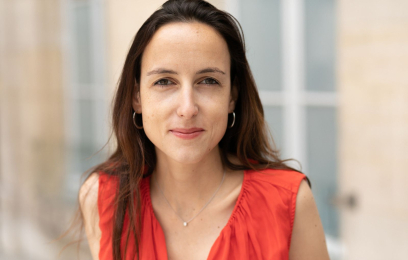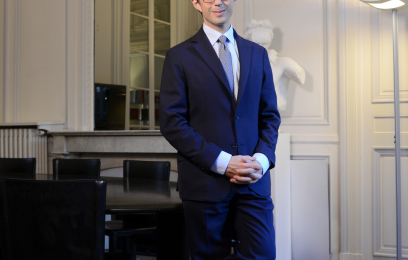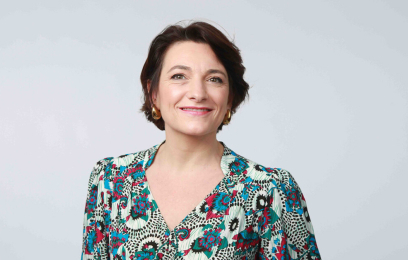Fitch affirmed Sciences Po’s A + rating and “stable” outlook today, bearing witness once again to the institution’s attractiveness and to the sustainable financial model that enabled the acquisition of the Hôtel de l’Artillerie in 2016 and plans for its development.
This rating and the maintenance of the stable outlook are a sign of “the institution’s academic excellence, both nationally and internationally, and its special position in the French academic landscape which attracts sustained student demand.” It is also the result of a change in the rating method for public sector entities last year, a method that now takes account of Sciences Po’s specific status.
Fitch’s assessment also reflects Sciences Po’s strong financial performance and the growth of its own funds and income sources (up 8.3% on average each year since 2010), while direct government funding (including local authorities for the campuses in the regions and the Paris City Council) has been consolidated. In 2016, Sciences Po’s own income sources accounted for 57.8% of its budget, or 55% if staff salaries coming directly from the Ministry of Higher Education and Research and CNRS, and which do not directly support the FNSP budget, are counted in Sciences Po’s funds.
The institution’s own funds increased by 7.8% in 2016 to €101 million. More specifically, Sciences Po demonstrated its growing ability to attract national and European research funding (up 5.3%), strengthened its presence on the continuing education market (sales up 15.7%), and convinced an even wider community of sponsors to support its projects (corporate sponsorship increased by 6.4% and private sponsorship by 30%).
Fitch confirms the strategic benefit of acquiring the Hôtel de l’Artillerie, which will allow Sciences Po to further streamline its Paris campus by ending 16 leases and consolidating its place among the leading universities in the humanities and social sciences. Fitch’s rating and outlook also take into account the figures presented in the funding plan for the Artillerie campus development.
According to Frédéric Mion, president of Sciences Po, “with this rating, Fitch acknowledges the value of our educational and institutional approach and our sound financial management. This confirms once again the sustainability of the Campus 2022 plan based on our renewed business model. Fitch is also well aware of our government funding and the financial security offered by the Paris City Council.”

02.04.2025
JULIA CAGÉ, PROFESSOR AT SCIENCES PO, AWARDED THE PRESTIGIOUS YRJÖ JAHNSSON PRIZE 2025
2 april 2025, Paris – Julia Cagé, Professor of Economics in the Department of Economics at Sciences Po, has been named co-recipient of the 2025 Yrjö Jahnsson Prize.
This European prize, awarded every two years by the European Economic Association (EEA) and the Yrjö Jahnsson Foundation, recognises economists under the age of 45 for their outstanding contributions to economic research in Europe. She is the first French economist to receive this distinction in 12 years.
"I extend my warmest congratulations to Julia Cagé for this prize, which recognizes the excellence of her research. At Sciences Po, we are proud to see a scholar whose work sheds light on the major democratic challenges of our time, particularly issues related to media independence and political transparency, receive such recognition. This award once again highlights the vitality of our academic research and its ability to inform public debate," Luis Vassy, President of Sciences Po.
Julia Cagé shares the prize with economist David Yanagizawa-Drott (University of Zurich). The selection committee praised their joint work in political economy and media studies, particularly their historical analyses of France, the United States, and Africa. The jury emphasised “the crucial importance of media independence for a healthy democracy” and the relevance of their research on the risks of controlled media systems.
Julia Cagé joined Sciences Po in 2014 after earning her PhD in Economics from Harvard University. She is an Associate Professor in the Department of Economics and, since 2018, has served as co-director of the “Democracy Evaluation” research group at Sciences Po’s Laboratory for Interdisciplinary Evaluation of Public Policies (LIEPP). Her research focuses on media economics, political participation, and social inequalities. In 2023, she was also awarded the Best Young Economist Prize by Le Monde and the Cercle des économistes.
Her recent projects explore issues related to the circulation of information in the digital age, disinformation, and the financing of electoral campaigns. In 2021, she received a prestigious ERC Starting Grant for her PARTICIPATE project, and has since secured several major grants, including from Project Liberty.
This is the first time that an economist from Sciences Po’s Department of Economics has received this award. Sciences Po thus becomes the third French university to count a Yrjö Jahnsson Prize laureate among its faculty, alongside the Toulouse School of Economics and the Paris School of Economics.
Read more

